Cricket for schools – how to introduce cricket into your PE lessons
Cricket has long been a staple of sports culture worldwide, with the England and Cricket Board reporting that 2.6 million people played the sport across England and Wales in 2023.
It’s clearly a favourite with the nation, and with its blend of athleticism, strategy and teamwork, cricket offers numerous benefits and opportunities for children and their development. That alongside the T20 World Cup being right around the corner, it’s no wonder cricket fever is running high!
Now is the time to get pupils involved in the excitement by introducing cricket into PE lessons. It can seem daunting for educators unfamiliar with the sport’s nuances, but we’re here to help – from equipment and basic skills to teaching strategies and the importance of inclusivity.

Why introduce cricket into schools?
Not only has cricket been a much-loved sport in the UK for hundreds of years, it’s also perfect to learn in a school environment, but that’s not the only reason why it’s a great sport to learn in school. It’s a game that encourages stamina, problem-solving and teamwork through physical activity.
To young people new to cricket, they’ll soon learn that it’s truly a full-body sport. Children will participate in lots of new kinds of movement that will help to improve a huge range of fundamental skills including agility, hand-eye coordination and quick-thinking.
Children have the opportunity to develop skills such as underarm throwing, overarm bowling, batting, catching and running – to name just a few!
It’s also a sport that has no shortage of variations, making it easily adaptable based on age and skill level so that the whole class can play and learn confidently during each PE session.
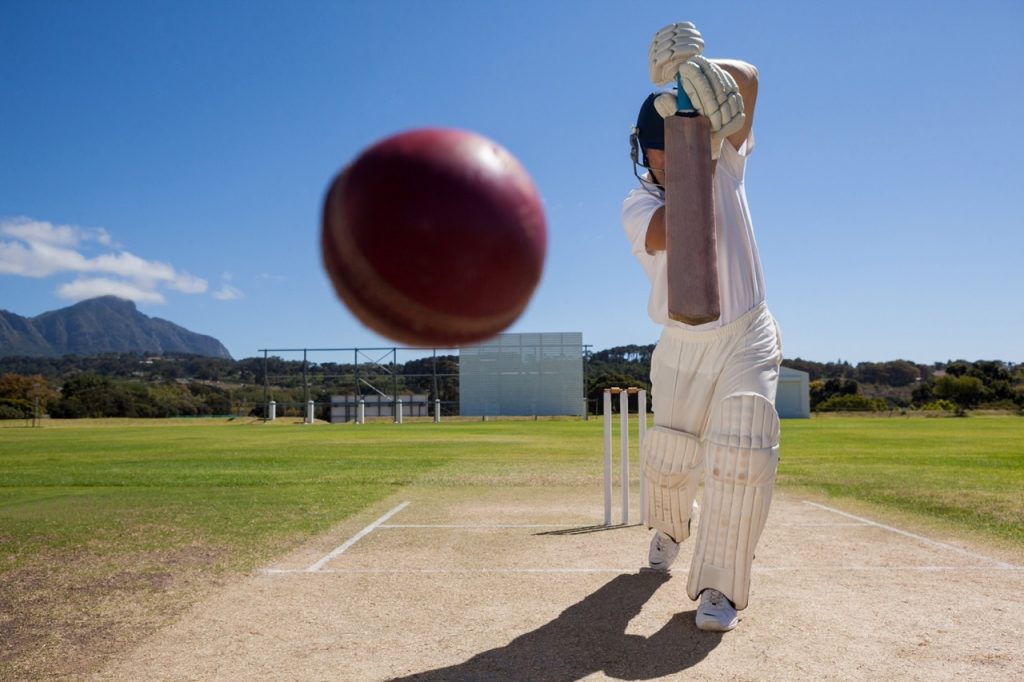
Understanding the basics of cricket
Before diving into how to integrate cricket into PE lessons, it’s essential to grasp the fundamentals of the sport.
At its core, cricket is a bat-and-ball game played between two teams. The objective is to score runs by hitting the ball and running between wickets while the opposing team tries to bowl them out.
Matches are typically played on oval-shaped grass fields, known as pitches, with a rectangular 22-yard-long strip called the pitch at the centre, as you often see on TV at Lord’s Cricket Stadium in London. However, it’s a sport that can be altered to fit whatever space schools have, and can even be moved indoors for wet PE days making it playable all year round.

Equipment needed for cricket
One of the first steps in introducing cricket to your school is ensuring that you have the necessary equipment. At a minimum, you’ll need:
- Cricket bats
- Balls
- Two sets of stumps
Cricket bats come in various sizes to accommodate players of different ages and skill levels, so it’s a good idea to have a range of options available. Additionally, soft cricket balls or tennis balls can be used for younger players to reduce the risk of injury while they learn the basics.
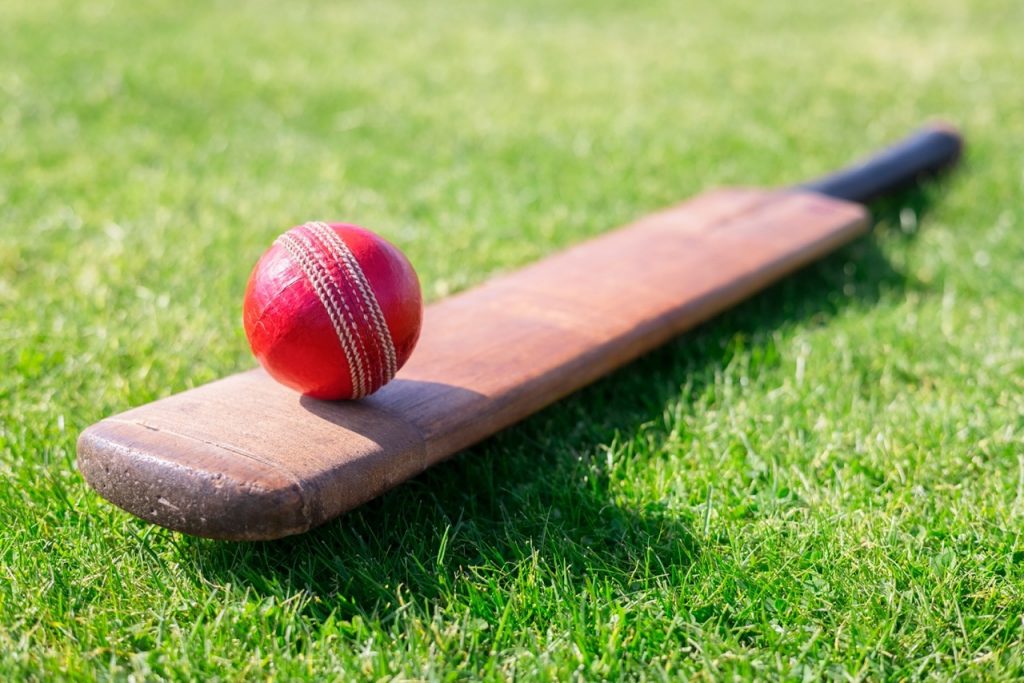
Teaching basic cricket skills
Cricket with its rules can be a tricky game for kids to get to grips with, so breaking it down into manageable skills is not only good practice, it will also help them from getting overwhelmed or bored when entering into an actual game.
When it comes to the basic building blocks of cricket, there are three main disciplines that pupils should start with: batting, bowling, and fielding.
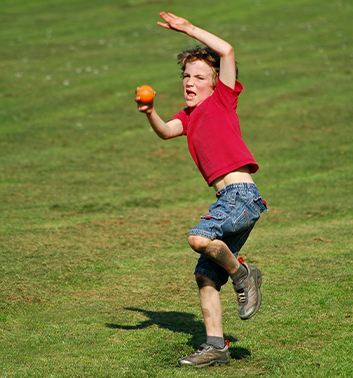
Batting
Batting can be an intimidating skill for children not used to playing these kinds of games, but it’s a core part of cricket – and can be lots of fun!
First start with how to hold the bat. Teach a solid stance with feet shoulder-width apart and knees slightly bent. Grip the bat firmly with both hands, positioning it close to the body with the face angled slightly towards the ground.
Then put this stance into practice with games that include hand-eye coordination, stability and balance.
A batting activity to try
An easy and fun batting activity for beginner cricketers is the “target hitting” exercise. Coaches can set up various targets on the field, such as cones, flags, or markers, at different distances and heights. The objective is for the batsman to hit the ball and aim for the targets while practising their batting technique.
As kids start to get better and develop their fielding skills too, swap out the targets for actual players whose aim is to catch the ball.

Fielding
Ever heard of the phrase “catches win matches”? It’s a philosophy that rings true with cricket, a game that at its heart is a game of throwing and catching.
To build up this skill, do activities that incorporate practising hand-eye coordination, quick decision making and communication – cricket is a team sport after all!
A fielding activity to try
The ‘fielding square’ activity is a great way to get started. Here’s how:
- Create a square area on the field using cones, split into four quadrants. Place one player in each quadrant.
- Select one player to act as the ‘feeder’ to stand in the centre of the square.
- The feeder will roll or throw balls randomly towards any of the quadrants within the square. The fielders must react quickly to the direction and speed of the ball and return it to the feeder as fast as possible.
- To make the activity harder, get the feeder to deliver the balls quicker at different speeds and heights.
Emphasise using proper fielding techniques, such as getting low to the ground, using two hands, and maintaining a strong throwing stance. It’s important for fielders to communicate with each other to avoid collisions and ensure efficient ball retrieval.
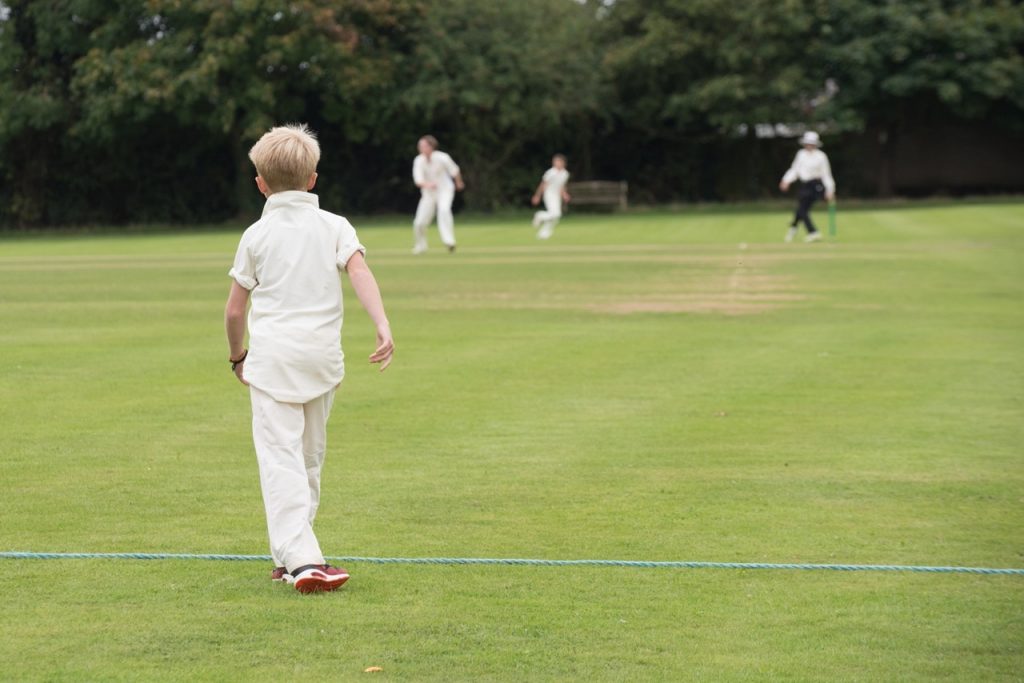
Adapt the game for different age groups and abilities
One of the challenges of improving your school’s cricket PE lessons is catering to students of varying ages and abilities so that everyone in your class can have fun.
For younger students or those new to the sport, the focus can be on developing fundamental motor skills such as hand-eye coordination and spatial awareness through simplified cricket activities. As students progress, gradually introduce more complex skills and game scenarios to challenge their abilities.
Additionally, consider incorporating modified versions of cricket to accommodate different playing environments and skill levels, such as softball cricket or indoor cricket which can be played any time of year. These adaptations not only make the game more accessible but provide more of a chance for enjoyment among students of all backgrounds. For more ideas and inspiration for PE in schools as a whole, check out our blog.

Book Premier Education cricket for your PE lessons
As we’ve seen, there’s a lot of moving parts involved in teaching cricket that can make it tricky. But the benefits to young people and the enjoyment it can bring are boundless, so don’t let difficult lesson planning stand in your way.
Premier Education’s activity professionals offer cricket sessions that can be incorporated straight into your current curriculum. We’ll take care of the planning, delivery and progress reporting so that you can introduce this sport to your pupils with high-energy active learning sessions.
Our curricular programmes and activities are designed to be bespoke to your school and the needs of your pupils. Your school’s cricket experience can be tailored to focus less on full matches and more on small, fun games and activities so that everyone can get moving and join in regardless of their skill level. And who knows, maybe in the future you’ll see former students representing the county or even England!
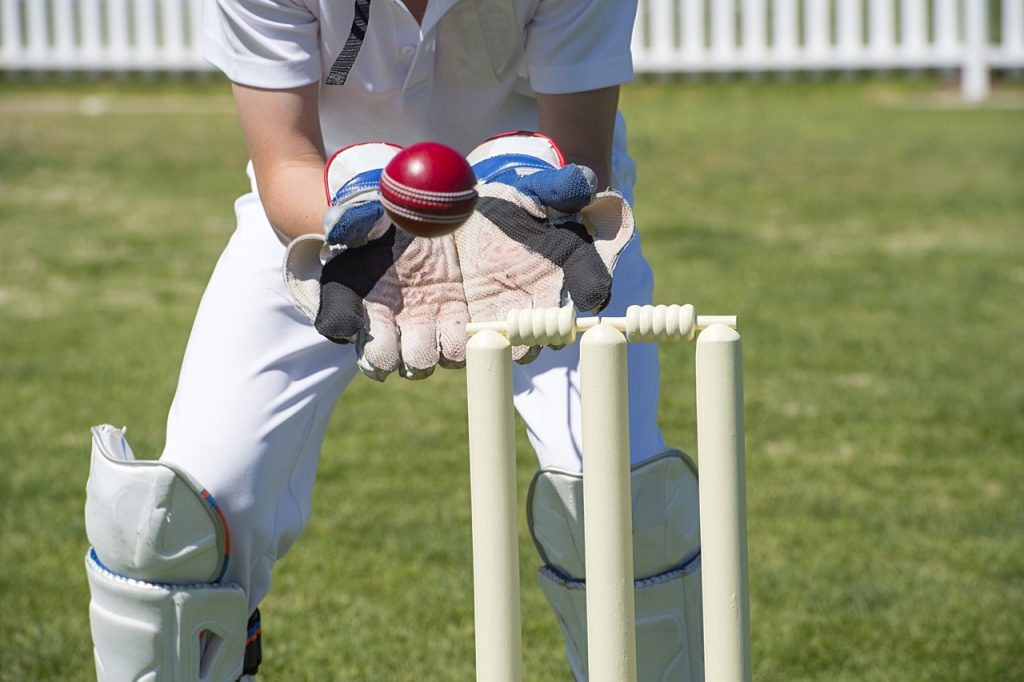
Contact us today
Whether you want to inspire your staff or bring cricket to your school as an extracurricular offering, both girls and boys will no doubt enjoy a chance to shine this cricket season. Contact us today to find out how our coaches can offer the perfect variety of drills and fun at your school.

